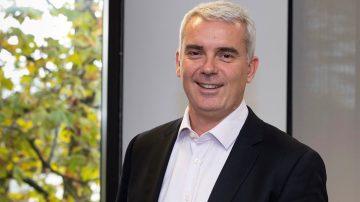EY’s Renewable Energy Country Attractiveness Index estimates that financial hurdles could be the biggest barrier to achieve net zero targets.
In 2020, global renewable energy capacity investments grew 2% to US$303.5b, the second-highest annual figure recorded to date despite the impact of the global COVID-19 pandemic. However, the 57th EY Renewable Energy Country Attractiveness Index (RECAI) estimates that future development to achieve net zero will require a further investment of US$5.2t and highlights the role institutional investors will need to play in financing the energy transition.
EY’s RECAI reports rank the world’s top 40 countries on the attractiveness of their renewable energy investment and deployment opportunities. The latest report, RECAI 57, finds that ESG goals are increasingly being prioritised on the investor agenda, while institutional investors’ interest in renewables continues to grow.

The forthcoming 2021 United Nations Climate Change Conference of the Parties (COP26) presents an opportunity to close the gap between what governments have promised to do and the level of action they have undertaken to date. RECAI 57 finds that current policy and pledge trajectories from leading nations indicate an increased commitment to greater accountability and transparency, with representatives expected to outline clear roadmaps and detail on policy measures to spur investment in renewables.
Peter Miller, Associate Partner at EY in Guernsey and a founding member of the Guernsey Green Forum, explained to Channel Eye: “The Index highlights the extent to which the COVID-19 pandemic has increased global awareness on the urgent environmental challenges we’re facing today. Convening moments, including COP26, present a collaborative platform to drive critical conversations around national and business net zero commitments.
“We need collaboration across industry ecosystems, geographies and governments, harnessing the power of technology to accelerate the world’s transformation to a more sustainable future.”
“Guernsey continues to take positive steps in this regard. This can be seen through the newly established Guernsey Green Forum, which brings together local business leaders from various industries, to support the island in reaching its sustainability and net-zero ambitions.
“Supported by the regulated green funds initiatives already in place, Guernsey is proving to be at the forefront of the key changes required, as outlined in our global findings. The upcoming Sustainable Finance week will be a great opportunity for Guernsey to drive these conversations further and showcase what Guernsey as a jurisdiction can offer on a wider platform.”
Francis Malaspina (shown in the main picture above), Associate Partner at EY in Jersey, added: “Earlier this year, Jersey Finance launched the Sustainable Finance: Jersey’s Pathway to Success, a two-year plan to accelerate the overall 2030 vision for Jersey to be recognised as the leading international sustainable finance centre.
“With the importance of ESG factors being more crucial than ever, as highlighted within the latest RECAI report, both Jersey and Guernsey have a real opportunity to lead the way in the ESG market, and ultimately become the benchmarks for other countries and markets to follow suit.”
For the complete top 40 ranking and analysis of the latest renewable energy developments across the globe, click here.















